|
|
|||
|
(Back to Preceding Week; on to Next Week) |
|
|
|
DOG DAYS OF AUGUST 2007
"Hot enough for ya?" The past two weeks, that cliched inquiry took on new meaning as temperatures soared above 100 and--in the absence of precipitation--significantly lowered the water level at Hilton Pond and threw the Carolina Piedmont into a dangerous drought. On 9-10 August, the thermometer in nearby Charlotte NC reached all-time record highs of 104 degrees; fortunately it was a degree or two cooler at Hilton Pond Center--not much consolation when the Dog Days of August still had humans and dogs alike dragging their tails in the heat. For the Romans, "Dog Days" occurred at mid-summer when "Dog Star" Sirius was the brightest star in the night sky and--so the ancients thought--gave off enough heat to cause seas to boil, wine to sour, dogs to go mad, and for humans to develop fevers and hysteria. We felt a bit feverish in the Dog Day heat but tried not to be hysterical, even though high temps and humidity caused our camera lens to fog any time we took it outside to document how our flora and fauna were faring during the Dog Days of August 2007.
All text & photos © Hilton Pond Center Not surprisingly, bird life around the Center was greatly diminished by the heat. Aside from occasional visitors to the water garden just outside the side door of our old farmhouse, most of the birds were laying low, moving as little as necessary and crouching in the darkest thickets they could find. A male Northern Cardinal (above) that had energy enough to visit a window feeder was in the throes of his annual molt. Although he wasn't one of the completely bald "lizard-heads" we get calls and E-mails about every year, he was still missing most of his crest and nape feathers--giving him a less-than-dignified appearance that actually may have been a bit cooler.
Last week we wrote about how most leaves at this time of year are less than complete, having lost portions of their surfaces to insects. Well, many insects themselves are also a little worse for wear, including a Red Admiral, Vanessa atalanta (above), resting in the shade of a Pecan tree. This butterfly had wings whose normally colorful tips were missing many of their protective scales, and its hindwings and forewings were raggedy and worn. If this individual has already mated, such wing wear doesn't really matter; like most butterflies the adult Red Admiral is destined to die before winter comes.
Another insect we found in the shade was on its way to exposing itself to full sunlight, mostly because it was eating itself out of house and home. A Monarch butterfly caterpillar, Danaus plexippus (above) had already defoliated most of a Swamp Milkweed plant--including the pink blossoms--and was going back to nibble on whatever leaf petioles remained. This colorful larva--probably the final instar stage--will soon be forming a chrysalis, a different sort of way to get out of the Dog Day heat. Such brilliantly colored Monarch caterpillars--toxic to most birds because of alkaloids they get from eating milkweed--spend non-eating time beneath the host plant's leaves, where their only real enemies are predatory Assassin Bugs or parasitic wasps and flies that lay their eggs in larvae.
One insect that seemed oblivious to the heat--perhaps it was cooled by a few drops of dew on its grape leaf platform--was a Versute Sharpshooter, Graphocephala versuta. This three-eighths-inch-long insect, which varies from drab to the bright colors in the photo above, is one of nearly 2,500 North American species of leafhoppers. Although they may cause direct damage to plants by sucking sap, Versute Sharpshooters are more feared because they can transmit a bacterium that is pathological to grapevines; thus, the relatively young wine industry in the Southeastern U.S. is deeply concerned about controlling this and other leafhoppers. Closely related leafhopper species are likewise known to spread viruses that affect alfalfa, clover, corn, and other agricultural crops. (NOTE: "Versute" means "crafty, wily, cunning, or artful," so we have no idea why such a term is applied to this leafhopper; we assume the "sharpshooter" part of its name comes from its bullet-like leaping ability.)
One way to beat the heat during Dog Days of August is to be nocturnal. Since we humans can't see in the dark, we don't often see many creatures that come out after the sun goes down, but one day this week we awoke to a trap full of nightstalkers. In recent nights a pack of free-roaming dogs without tags or collars has been marauding homes around Hilton Pond Center, damaging property, chasing cattle, and howling loudly enough to waken neighbors. We set a large trap one night in an effort to corral these canines and arose one morning to find instead three half-grown Raccoons, Procyon lotor. These masked bandits, undoubtedly siblings from a spring litter, were about as laid back as wild animals could be. They stared at us while we photographed and--unlike some adult Raccoons we've encountered--never hissed or snapped. After finishing with our camera work, we carefully opened the trapdoor and stood back as the three 'coons waddled out of the trap and made a beeline down the trail, undoubtedly toward a den they've been sharing since birth--a den we hope allows them to avoid wild dogs.
Despite our Dog Day temperatures, some critters around Hilton Pond found time to engage in the all-important past time of reproduction. As we gazed at the pond from our office window one afternoon, we noticed a fast-moving Carolina Anole, Anolis carolinensis, scooting up the trunk of a Flowering Dogwood. While we watched, the lizard tumbled down onto our back deck, but by now there were TWO anoles that seemed to be attached to each other. As we grabbed our camera we could see the two lizards were intertwined, and the one on top flashed a red dewlap indicating it was the male. Initially he had a fold of the female's neck skin between his tiny, needle-sharp teeth, but he released that hold as he pushed down on her back with his right foreleg, wrapped his left hindleg around hers, and bent the base of his tail downward. The male anole has a pair of sac-like hemipenes he everts--one at a time, depending on which side he's on--and thrusts into the female's cloaca. We couldn't tell if this was a successful copulation and we only had time for a couple of quick photos before the still enraptured pair dived off the deck and into a pile of dead leaves--perhaps a place where their ardor cooled down a bit in the Dog Day heat.
Even though the anoles were busy making more anoles, the 2007 mating season is probably over for Ruby-throated Hummingbirds around Hilton Pond. Nearly all our adult males have disappeared--some begin their southward migration as early as mid-July--so there's none of that frenetic territoriality so apparent earlier in the season. In fact, with all this heat, even feeding behavior diminished among our hummers; relatively little sugar water was being consumed by females and juvenile males that remain. Most days it's been too hot to run our mist nets--it's not in any bird's best interest to get caught in a net when the temperature is above 100--but we have been watching our hummingbird traps that don't work unless we pull a string or flip a lever to cause the trapdoor to close. This allows us to immediately extricate a bird and bring it in for banding. One RTHU we trapped this week was particularly interesting: A juvenile male with an incomplete but highly noticeable gorget (above). This bird already had perhaps three dozen of its red throat feathers--plumage many young males don't acquire until they're on wintering grounds in Mexico and Central America. Because of the extent of his throat molt--the most we've ever seen on a juvenile bird in 24 years of hummingbird banding here at the Center--we suspect this bird hatched and fledged VERY early in the 2007 breeding season. Although the weather around Hilton Pond Center has been nearly unbearable for us pampered humans, the photos above show nature carries on despite the heat and lack of rain. Even so, if insects, birds, anoles, and Raccoons can express happiness, we bet they'd be just as happy as we to have lower temperatures and some steady precipitation to wash away the Dog Days of August 2007.
All text & photos © Hilton Pond Center
Comments or questions about this week's installment?
Thanks to the following fine folks for recent gifts in support of Hilton Pond Center for Piedmont Natural History and/or Operation RubyThroat: The Hummingbird Project. Your tax-deductible contributions allow us to continue writing, photographing, and sharing "This Week at Hilton Pond." (Please see Support if you'd like to make a gift of your own.)
IMPORTANT NOTE: If you ever shop on-line, you may be interested in becoming a member of iGive, through which nearly 700 on-line stores from Barnes and Noble to Lands' End will donate a percentage of your purchase price in support of Hilton Pond Center and Operation RubyThroat. For every new member who signs up and makes an on-line purchase iGive will donate an ADDITIONAL $5 to the Center. Please sign up by going to the iGive Web site. It's a painless, important way for YOU to support our work in conservation, education, and research. "This Week at Hilton Pond" is written & photographed You may wish to consult our Index of all nature topics covered since February 2000. You can also use our on-line Hilton Pond Search Engine at the bottom of this page. For a free, non-fattening, on-line subscription to |


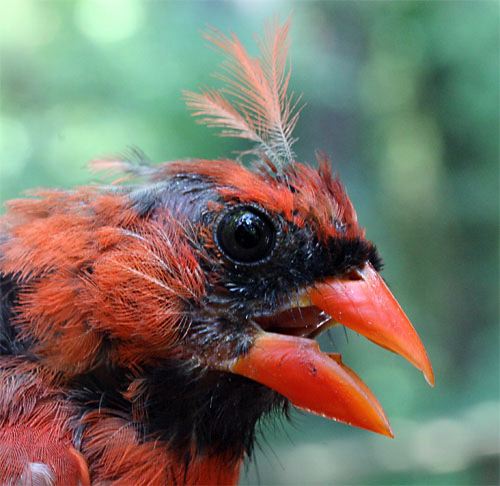
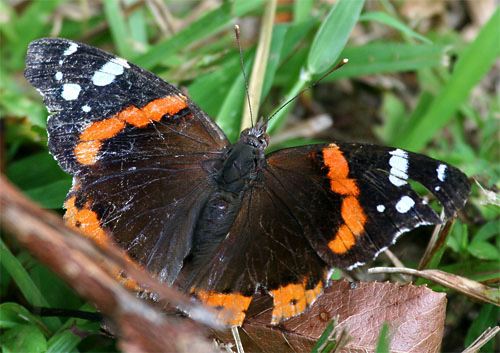
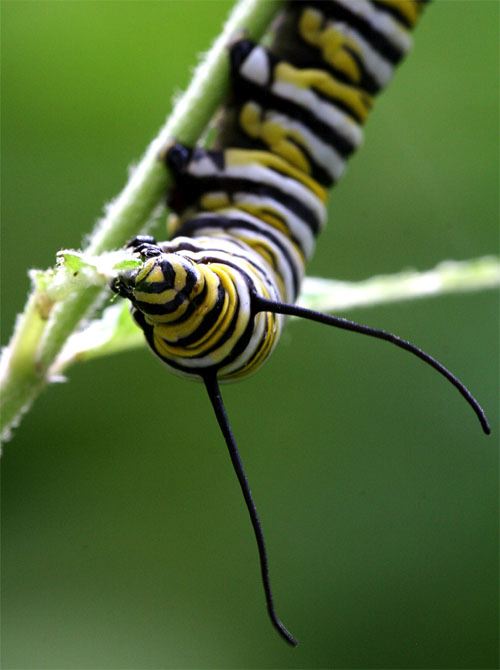
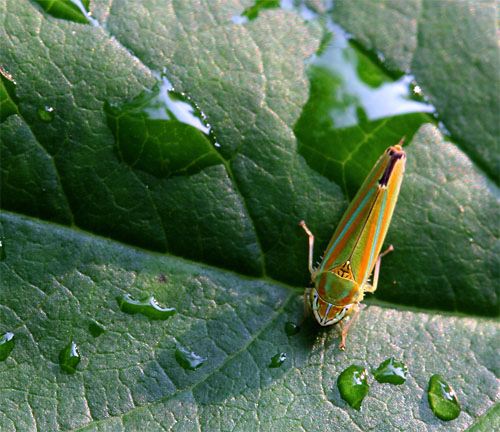

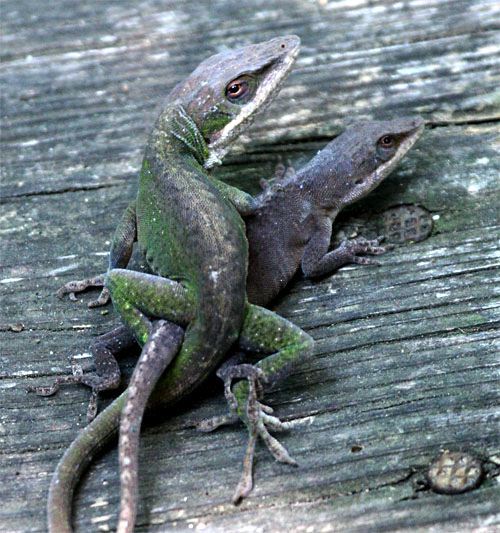
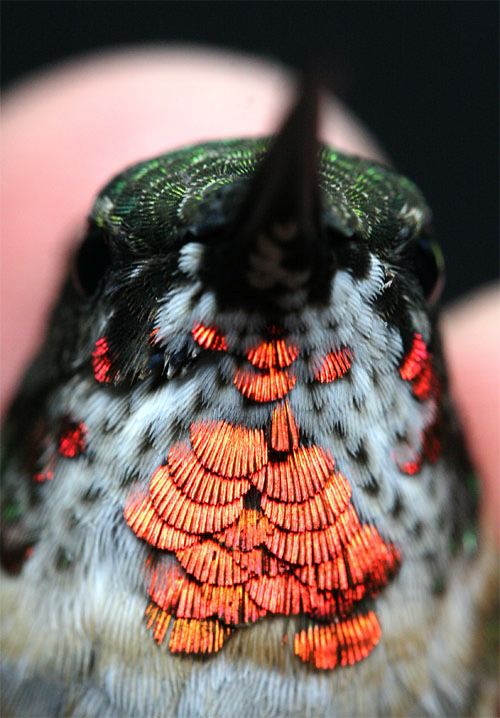


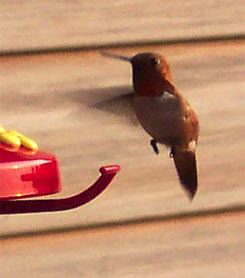
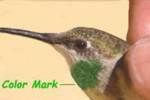 Please report your
Please report your
